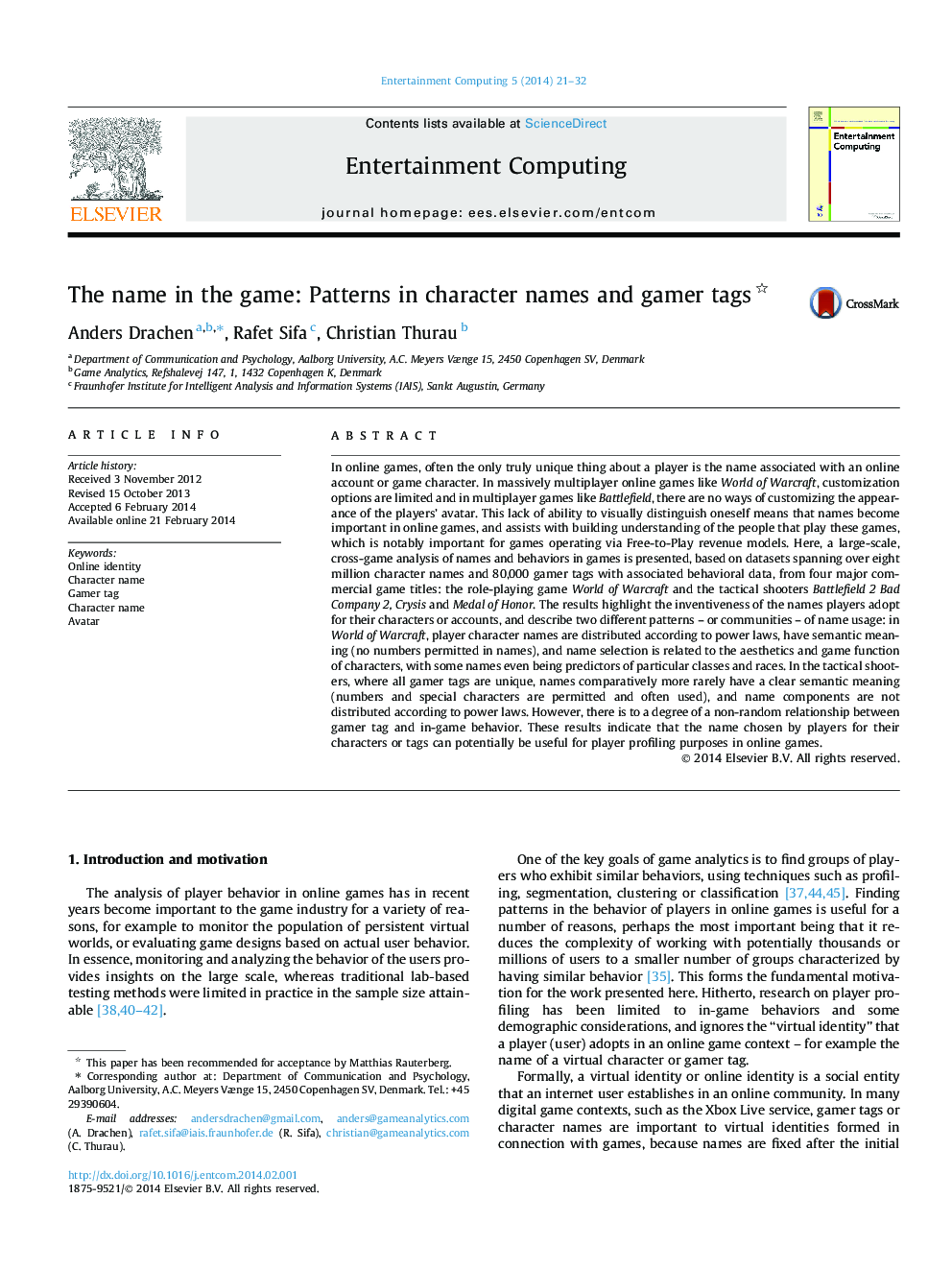| Article ID | Journal | Published Year | Pages | File Type |
|---|---|---|---|---|
| 381913 | Entertainment Computing | 2014 | 12 Pages |
•In World of Warcraft, player character names are distributed according to power laws.•In World of Warcraft, player character names have semantic meaning and are influenced by aesthetics and game function.•In tactical shooters, gamer tags are unique and names rarely have direct semantic meaning.•In tactical shooters, gamer tags are not distributed according to power laws.•The name chosen by the player for a gamer tag relates to their in-game behavior.
In online games, often the only truly unique thing about a player is the name associated with an online account or game character. In massively multiplayer online games like World of Warcraft, customization options are limited and in multiplayer games like Battlefield, there are no ways of customizing the appearance of the players’ avatar. This lack of ability to visually distinguish oneself means that names become important in online games, and assists with building understanding of the people that play these games, which is notably important for games operating via Free-to-Play revenue models. Here, a large-scale, cross-game analysis of names and behaviors in games is presented, based on datasets spanning over eight million character names and 80,000 gamer tags with associated behavioral data, from four major commercial game titles: the role-playing game World of Warcraft and the tactical shooters Battlefield 2 Bad Company 2, Crysis and Medal of Honor. The results highlight the inventiveness of the names players adopt for their characters or accounts, and describe two different patterns – or communities – of name usage: in World of Warcraft, player character names are distributed according to power laws, have semantic meaning (no numbers permitted in names), and name selection is related to the aesthetics and game function of characters, with some names even being predictors of particular classes and races. In the tactical shooters, where all gamer tags are unique, names comparatively more rarely have a clear semantic meaning (numbers and special characters are permitted and often used), and name components are not distributed according to power laws. However, there is to a degree of a non-random relationship between gamer tag and in-game behavior. These results indicate that the name chosen by players for their characters or tags can potentially be useful for player profiling purposes in online games.
